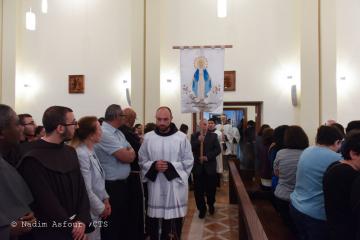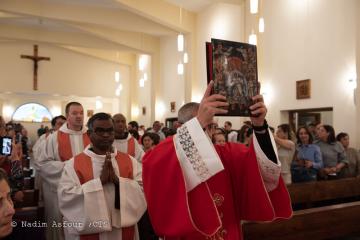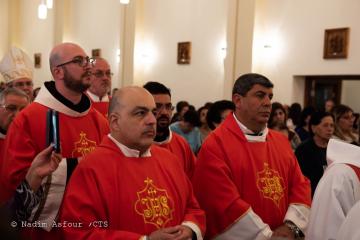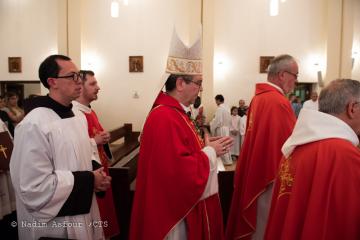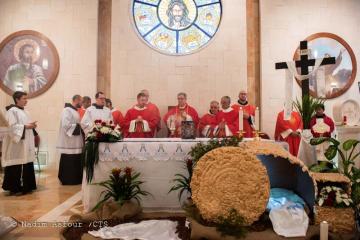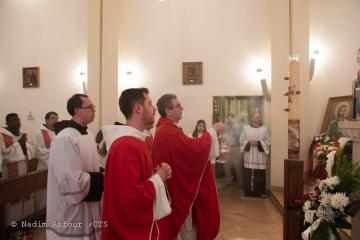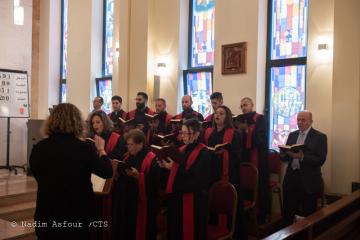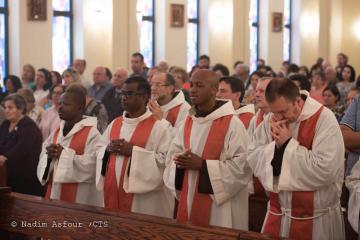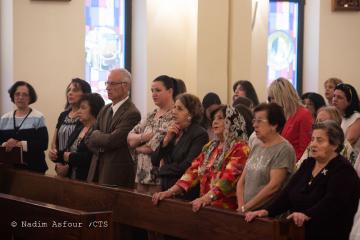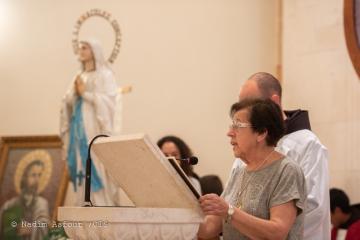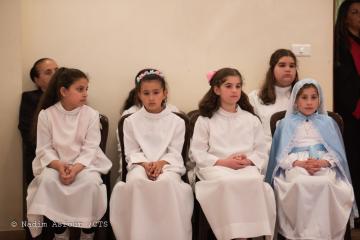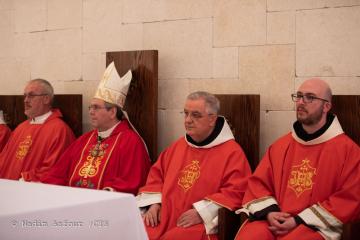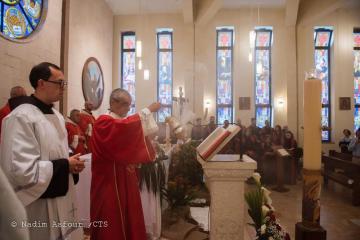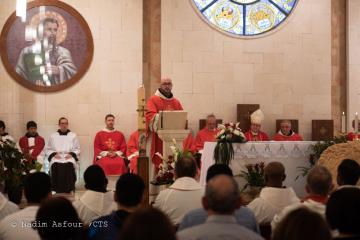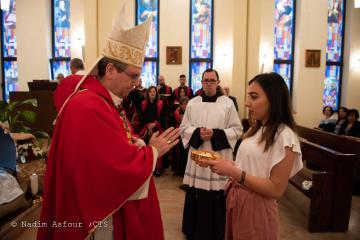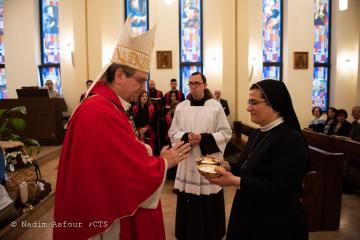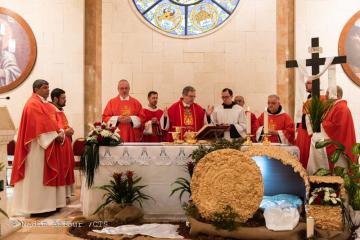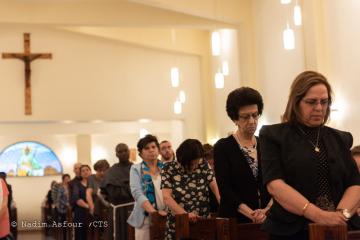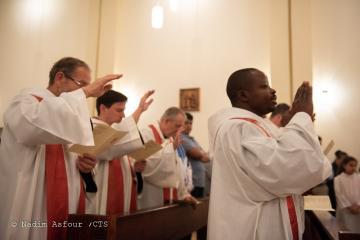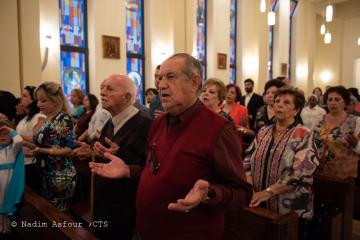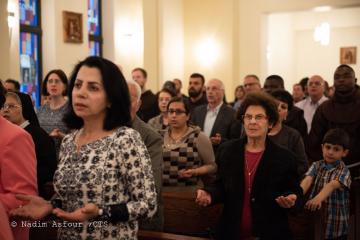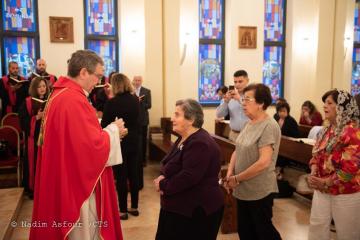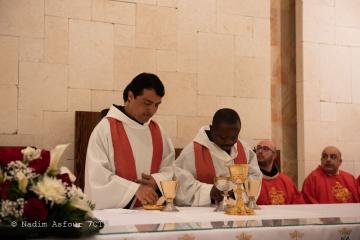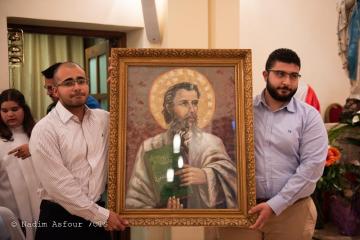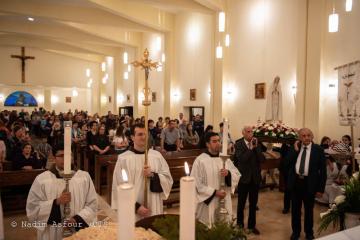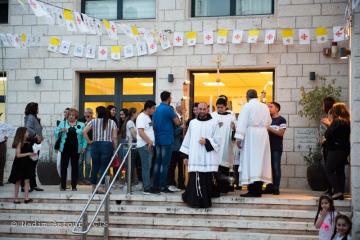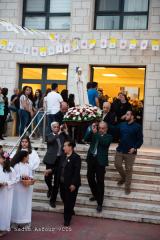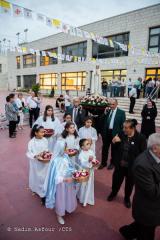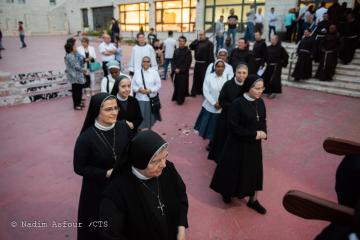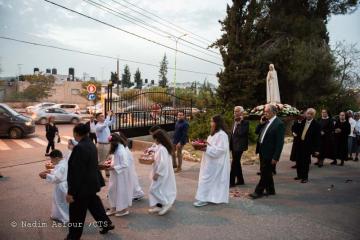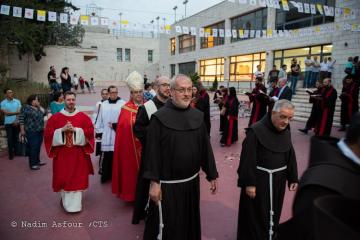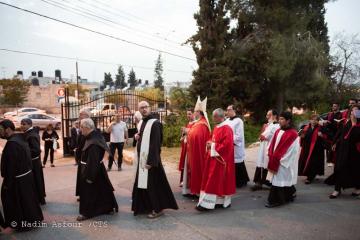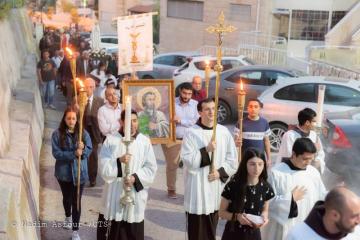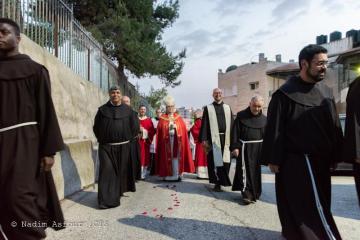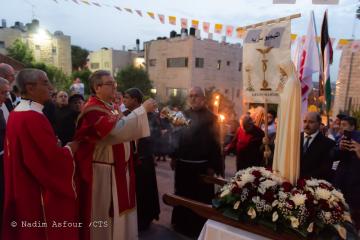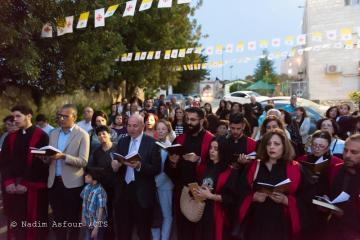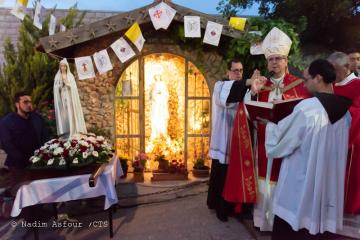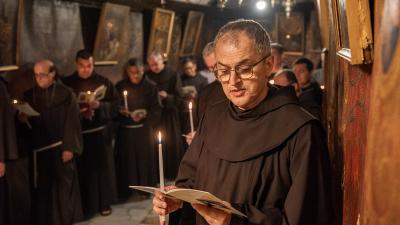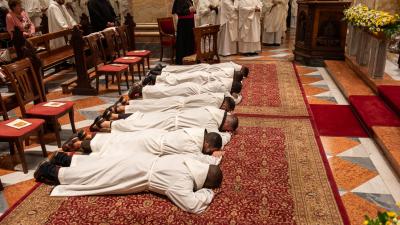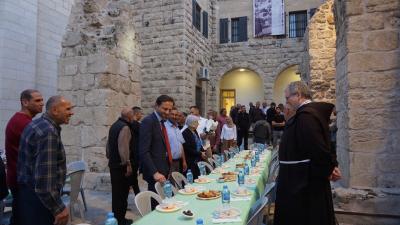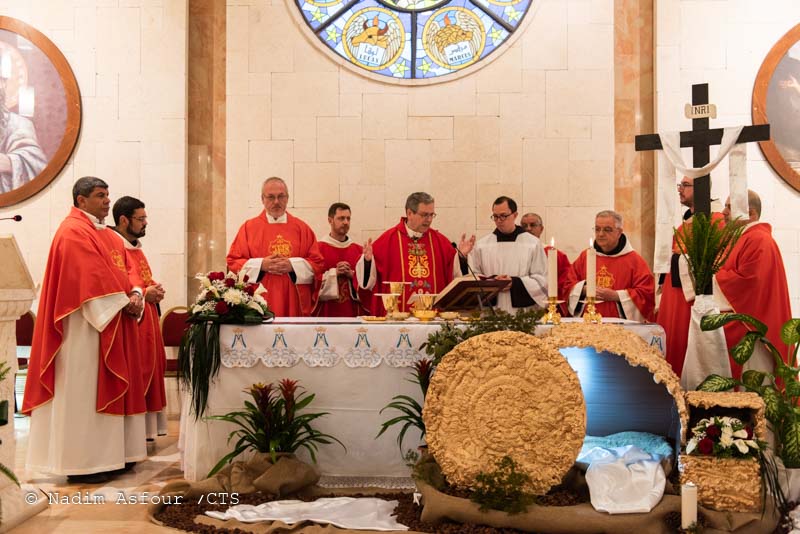
A particular celebration took place in Jerusalem on 1st May 2019: the quasi-parish of Beit Hanina, a part of Jerusalem where many Christians live, hosted the Custos of the Holy Land and the members of the Discretorium.
The Apostolic Administrator of the Latin patriarchate of Jerusalem, Mons. Pierbattista Pizzaballa, has recently erected the quasi-parish of Beit Hanina in order to assure adequate and continuous spiritual assistance for the constantly growing number of local faithful. This way, the quasi-parish continues to be linked to that of St Saviour, in the Old City of Jerusalem, but is not completely dependent on it.
"Today is an important day for us,” said the Custos Fr. Francesco Patton, introducing the celebration of the Eucharist, “because the church of Beit Hanina has been declared a quasi-parish but for two other reasons as well: the start of the Marian month and the solemnity of St James the Less, the patron saint of this Church and Bishop of Jerusalem, who expressed his love and his fidelity to Jesus in this Earth until death.”
Fr. Bernardo Lawand, who has been the parish priest of the quasi-parish of Beit Hanina for three months, commented, ”What I like about this area is that it is alive; the community of the faithful feels very strongly that it belongs both to the Church and to the Parish Centre.". As the parish priest emphasized, 500 families come under this quasi-parish and the parishioners are engaged in a number of different groups: from catechism to the group for young people and university students, to the group of workers, the pensioners, the group of the Legion of Mary, the choir and many other activities. "It is a parish that is very much alive, I hope it remains that way forever.”
The Custody pays continuous attention to the community of local Christians and this is expressed in the care of some 500 households in the Old City and more than 130 in the rest of Jerusalem. This care is translated into the accompaniment and support for families, both providing them with a suitable home and collaborating on the renovation work, and offering opportunities for training and work to the young people, so that they do not feel excluded and are not forced to emigrate.
Giovanni Malaspina


